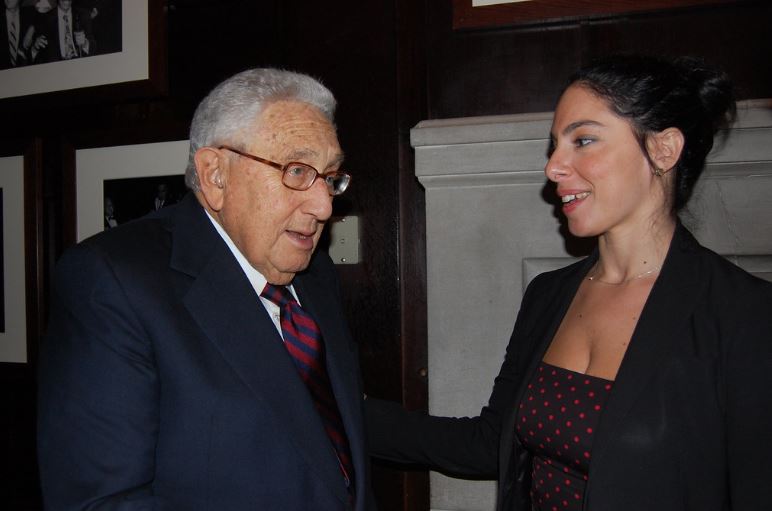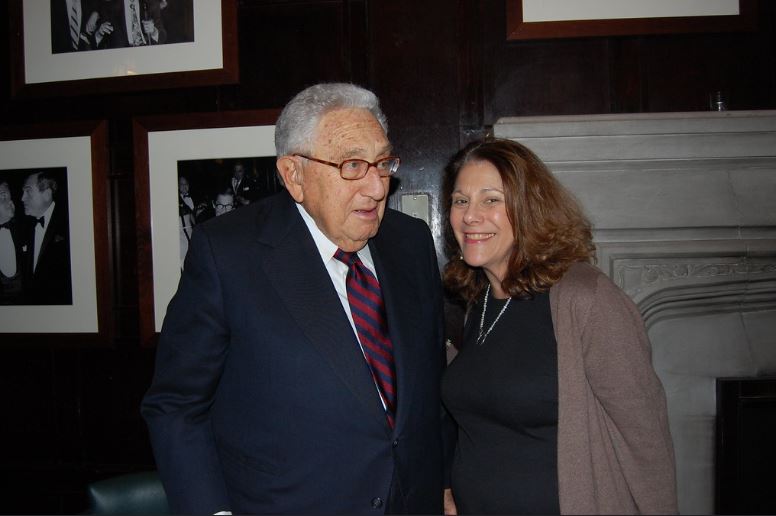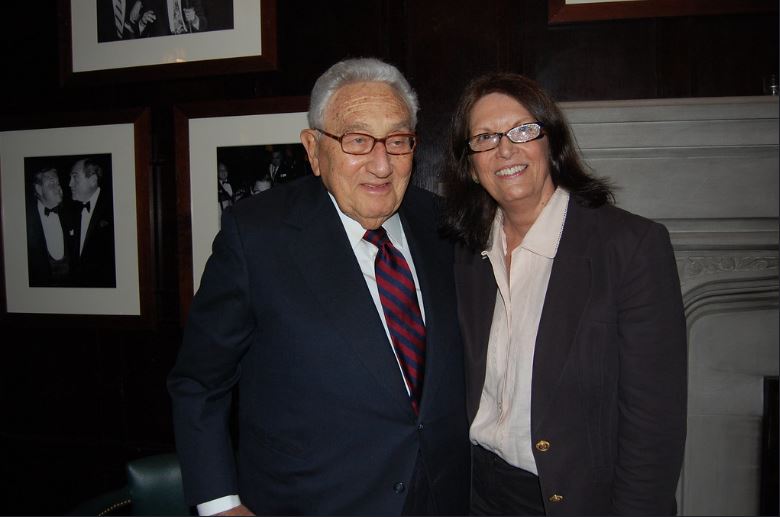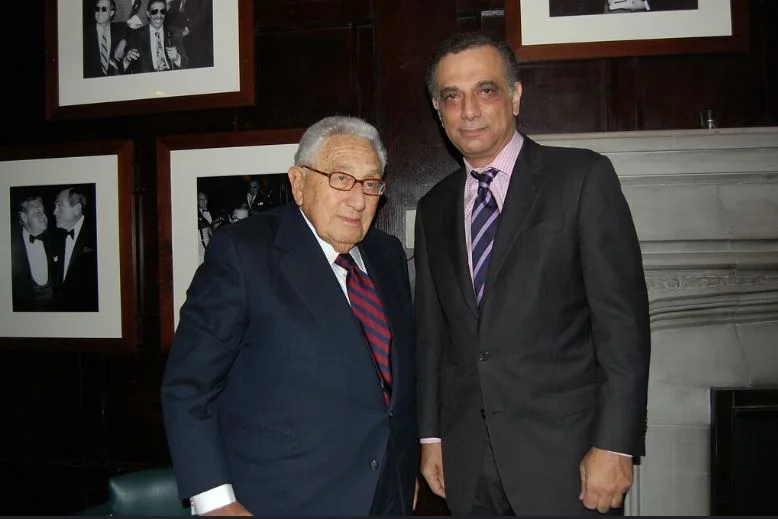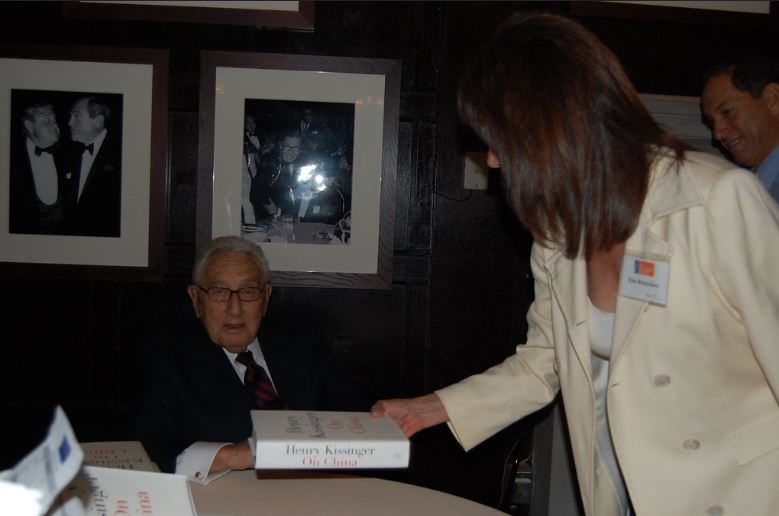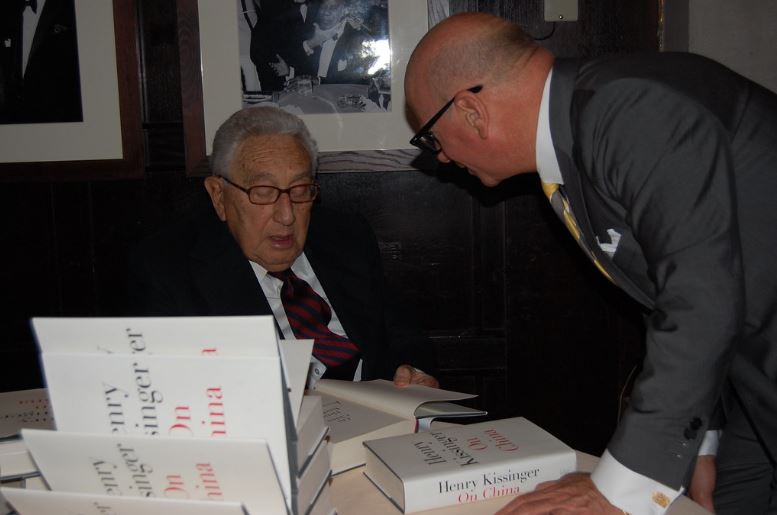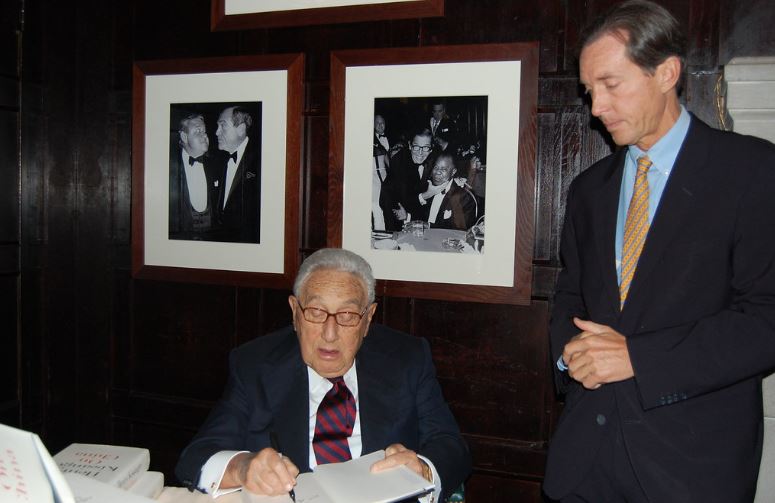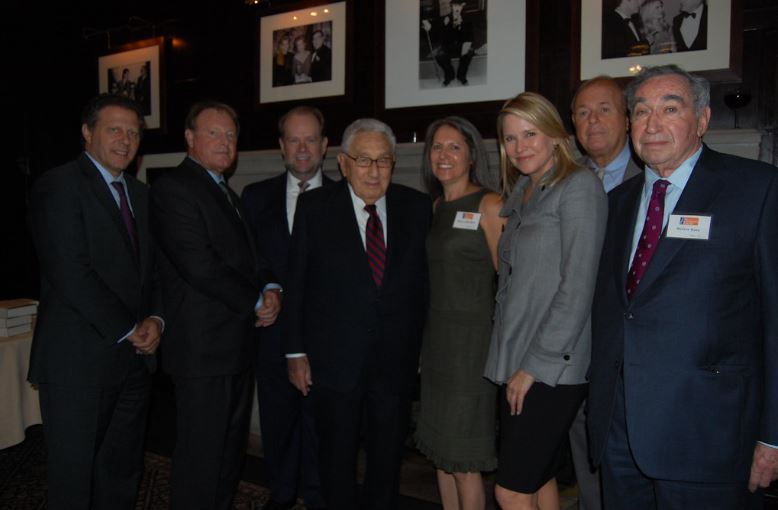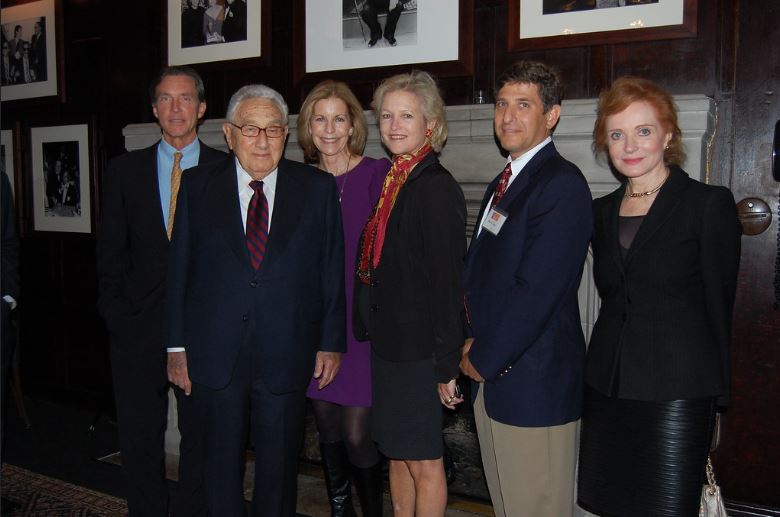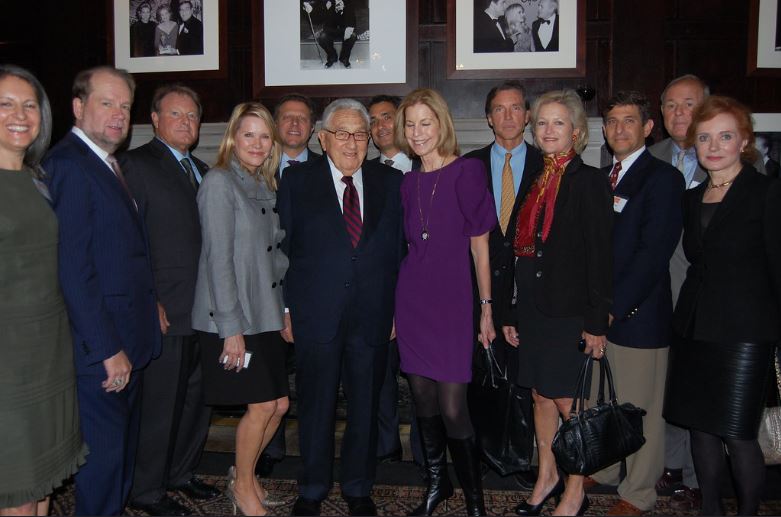Former Secretary of State Henry Kissinger on China
The Common Good hosted a luncheon with Former Secretary of State Henry Kissinger as he discussed his latest book On China. As China emerges as an economic juggernaut and competes increasingly with the United States for world resources, market share and international influence, we need to better understand this country and the new realities. Dr. Kissinger will discuss China, a country he has known intimately for decades, and whose modern relations with the West he helped shape.
Former Secretary of State Henry Kissinger’s new book, On China, draws on historical records as well as his conversations with Chinese leaders over the past 40 years to examine how China has approached diplomacy, strategy, and negotiation throughout its history, and reflects on the consequences for the global balance of power in the 21st century.
“Henry Kissinger will always remain a controversial historical figure. But this elegantly written and erudite book reminds us that on one of the biggest questions of the post-second world war world his judgment was right, and showed a long-term vision that few politicians of any country could match today. Unless, of course, Hillary Clinton is even now on a secret mission to Tehran.”
“To the degree that Washington and Beijing now understand each other, it is in good measure because Kissinger has been assiduously translating for both sides, discerning meaning in everything from elliptical jokes to temper tantrums. At every juncture, he has been striving to find “strategic concepts” that could be made to prevail over a history of conflict, mutual grievance and fear. As President Nixon’s national security adviser, then secretary of state for Nixon and Gerald Ford, and since 1977 as a private interlocutor extraordinaire, Kissinger has been unwaveringly committed to surmounting what he considers the legitimate Chinese resentment of American interference in their internal affairs and Americans’ distaste for China’s brutal suppression of ethnic, religious and political dissent. The surprise buried in his lumbering review of Sino-American relations is that the much ballyhooed Nixon-Kissinger journeys to China in 1971-72 turned out to have been the easy part.”
“Nobody living can claim greater credit than Mr. Kissinger for America’s 1971 opening to Beijing, after more than two decades of estrangement, and for China’s subsequent opening to the world. So it’s fitting that Mr. Kissinger has now written “On China,” a fluent, fascinating and sometimes infuriating book that is part history, part memoir and above all an examination of the premises, methods and aims of Chinese foreign policy.”
Henry A. Kissinger was sworn in on September 22, 1973, as the 56th Secretary of State, a position he held until January 20, 1977. He also served as Assistant to the President for National Security Affairs from January 20, 1969, until November 3, 1975. In July 1983, he was appointed by President Reagan to chair the National Bipartisan Commission on Central America until it ceased operation in January 1985, and from 1984-1990 he served as a member of the President’s Foreign Intelligence Advisory Board. From 1986-1988 he was a member of the Commission on Integrated Long-Term Strategy of the National Security Council and Defense Department. He is currently a member of the Defense Policy Board. Dr. Kissinger received the Nobel Peace Prize in 1973; the Presidential Medal of Freedom (the nation’s highest civilian award) in 1977; and the Medal of Liberty (given one time to ten foreign-born American leaders) in 1986.




